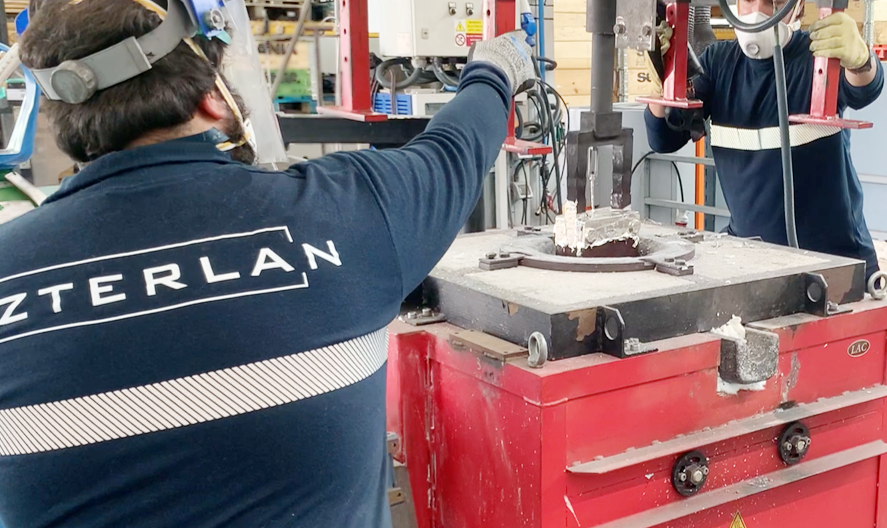The ATLANTIS project consortium seeks to develop new materials and manufacturing processes, including sustainability concepts, both in the design and manufacturing phases, and in their processing at the end of their useful life. The AZTERLAN Metallurgy Research Centre will play a relevant role in the development and advanced characterization of the new materials to be developed within the project.
Focused on reducing emissions by promoting sustainable mobility and electrification of vehicles based on the use of renewable energy, the ATLANTIS project was born with the objective of developing more sustainable, efficient and recoverable Advanced Materials. To this end, the project consortium is already working on the development of new materials through an innovative approach, expanding its scope to the search for advanced and tailored mechanical, electrical, thermal and magnetic properties, thinking about new models adapted to the end use. of the materials.
Taking the lead from projects such as Minerva, Cempa, Actimat or Newhea, among others, ATLANTIS addresses new technical challenges that mainly focus on the development of materials with advanced electromagnetic properties and materials with improved thermal-structural properties. Specifically, the different research teams aim to reach TRL3-TRL4 developments of new soft magnetic electrical steels, new aluminum alloys with high electrical conductivity, microalloyed aluminum alloys with enhanced mechanical properties, new hard-magnetism alloys free of rare earths, refractory ceramics and High Entropy Alloys (HEA), Bulk Metallic Glasses (BMG) and HEAs-based cermets to be used as substrates, together with advanced coatings for application in demanding conditions.
Research contribution of AZTERLAN in the ATLANTIS project
Within the ATLANTIS project, AZTERLAN will participate in the different phases of the design, development and characterization of the new materials. As explainded by AZTERLAN Special Materials and Processes researcher Mikel Rouco, “based on theoretical analysis supported by thermodynamic and microstructural modellers, we will analyze the expected properties in regards of magnetism and electrical conductivity, and we will formulate the most appropriate chemical compositions. Likewise, we will define their manufacturing processes and the tests or stages for their experimental analysis.” Likewise, in the development of materials with innovative thermal-structural properties, AZTERLAN will have a relevant role in the field of “characterization of HEAs, BMG and WC cermets”. In this field, “we will define the characterization methodology, applying the Small Puch Test, in order to know the plastic formability of these new materials.”
The ATLANTIS project is financed by the Basque Government through the Elkartek Program (KK-2024/00061). The consortium of this outstanding project is participated by the Technlogy Centres CEIT (project leader), AZTERLAN, LORTEK, TECNALIA and TEKNIKER, members of the BRTA, as well as by EIPC, MGEP and UPV/EHU.
The activity and results of ATLANTIS will also reinforce the activity of the Advanced Materials Node of the Basque Digital Innovation Hub.

Launch meeting of the ATLANTIS project, participated by CEIT (project leader), AZTERLAN, EIPC, LORTEK, MGEP, TECNALIA, TEKNIKER and UPV/EHU.


